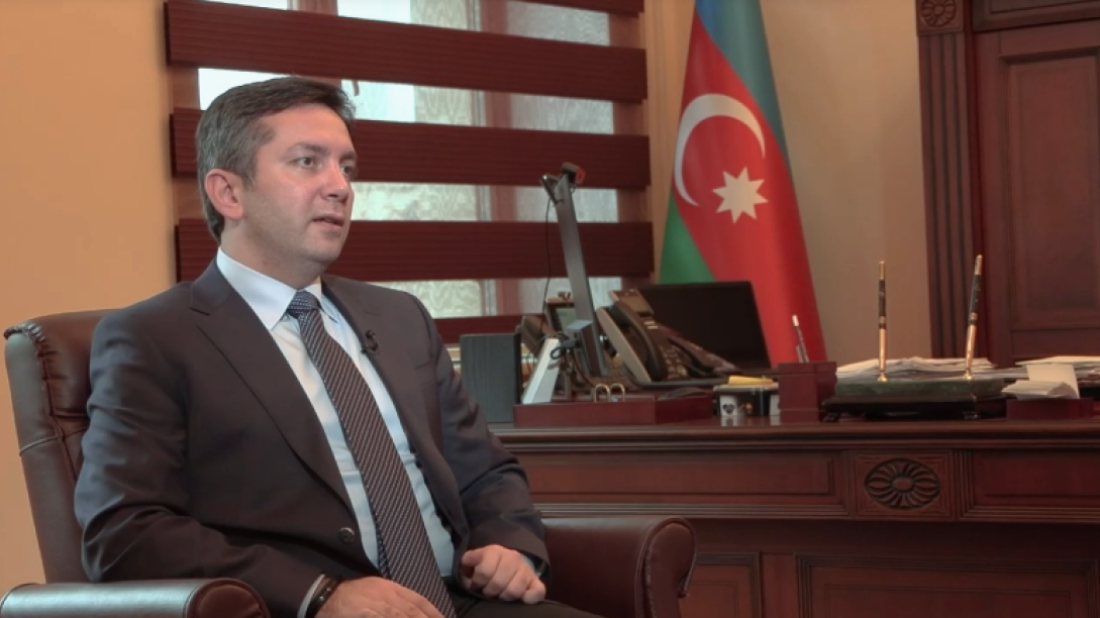Balcazar elected as Peru’s interim president
Peruvian lawmakers elected Jose Balcazar as the country's new interim president on Wednesday ahead of general elections in April....

As COP29 concludes, lead negotiator Yalchin Rafiyev reflects on its outcomes and legacy. In an exclusive interview with AnewZ, he discusses the next steps in global climate action and shares a message for Brazil, the host of the 2025 UN Climate Change Conference.
The COP29 summit ended last weekend with an agreement that nations will raise three hundred billion dollars towards vulnerable countries affected by climate change. Azerbaijan's lead negotiator Yalchin Rafiyev says it is now important for Baku to keep up the momentum.
"We have just started our presidency. It means for the next one year period, we will work hard to continue our presidency, to come up with new ideas, to help the Brazilian presidency build their own outcomes, a package. Also, as part of Troika, we will need to work closely with UAE and Brazil. But also, in terms of strategic importance for Azerbaijan, we need to keep... We maintain the legacy of Baku, we need to strengthen it, we need to promote it, because Baku was one of the historical COPs, ever. Because of its outcomes, because of the level of attendance, because of many important pledges and promises made by certain countries, and because of many innovations. And we need to keep, in the next few years at least, this legacy to be strengthened, maintained, and then further build upon it by having contributed to the global climate action, including the negotiations," Rafiyev stated.
As COP29 concluded, some countries, including India, Bolivia, and Cuba, voiced concerns over the outcome. Rafiyev explains the different positions these countries took and what steps will be needed to continue dialogue and collaboration moving forward.
"India was, of course, trying to block the whole decision, but they came to us, asked for a floor in the statement, but did not mention when. If it is before the adoption or after. And we, after the adoption, we gave them a floor and they expressed their view. When it comes to Bolivia, Bolivia was not against the decision, was not blocking it, just expressed solidarity with India. Those positions that the figure is low, that the developed countries should do more, and Cuba as well. So their dissatisfaction was not about the decision, but about the approach by the developed countries,"- he said.
Looking ahead to next year's UN Climate Change Conference at the port city of Belém, Rafiyev has a key message for the upcoming Brazilian presidency.
"Do not bring the political, geopolitical divides into the negotiations, I would say, into the negotiations process. Because if you bring these geopolitical divides, you end up in a situation where even though this is something that affects humanity, you cannot act impartially. Like those issues that you have been experiencing in other parts, in other areas of geopolitics, you have been observing also here,"- shared Rafiyev with AnewZ.
The UN Climate Change Conference (COP29) held in Baku from November 11 to 23 and led to significant progress in the fight against climate change.
The drumbeats have finally faded at the Marquês de Sapucaí, bringing the competitive phase of the Rio Carnival 2026 to a dazzling close. Over two marathon nights of spectacle, the twelve elite schools of the "Special Group" transformed the Sambadrome into a riot of colour.
Peru’s Congress has voted to censure and remove José Enrique Jeri Ore from his posts as President of Congress and acting President of the Republic, just four months into his tenure, citing undisclosed meetings with Chinese businessmen and alleged hiring irregularities.
France celebrated Olympic gold in the men’s biathlon relay in Anterselva on Tuesday (17 February), following a thrilling race marked by an electric atmosphere at the stadium.
Qarabağ FK are facing Newcastle United in the UEFA Champions League play-off round on Wednesday evening in Baku, in what will be the first UEFA competition meeting between the two clubs.
Iranian officials say more than 300 undocumented Afghan migrants have been rescued after being stranded in cold and rain near the border district of Taybad, in the northeastern Razavi Khorasan province.
The administration of U.S. President Donald Trump on Thursday (12 February) announced the repeal of a scientific finding that greenhouse gas emissions endanger human health, and eliminated federal tailpipe emissions standards for cars and trucks.
Tropical Cyclone Gezani has killed at least 31 people and left four others missing after tearing through eastern Madagascar, the government said on Wednesday, with the island nation’s second-largest city bearing the brunt of the destruction.
Rivers and reservoirs across Spain and Portugal were on the verge of overflowing on Wednesday as a new weather front pounded the Iberian peninsula, compounding damage from last week's Storm Kristin.
Morocco has evacuated more than 100,000 people from four provinces after heavy rainfall triggered flash floods across several northern regions, the Interior Ministry said on Wednesday.
Greenland registered its warmest January on record, sharpening concerns over how fast-rising Arctic temperatures are reshaping core parts of the island’s economy.
You can download the AnewZ application from Play Store and the App Store.

What is your opinion on this topic?
Leave the first comment